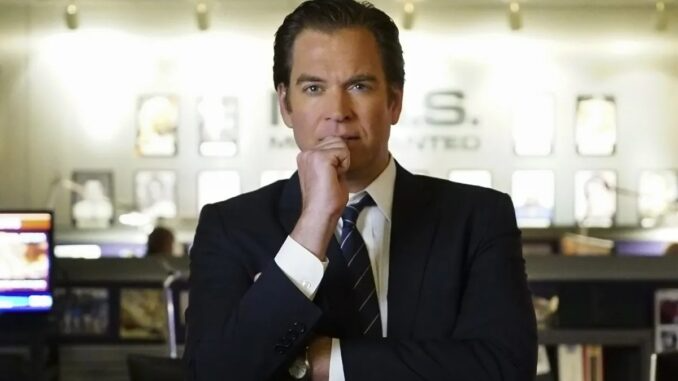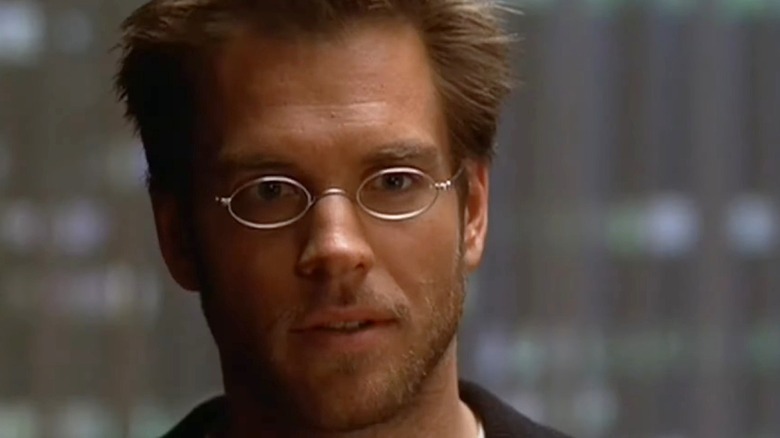
When audiences think of Michael Weatherly, the first images that usually come to mind are his charming and quick-witted portrayal of Special Agent Anthony DiNozzo on NCIS or his later turn as the headstrong trial consultant in Bull. But before he became a household name in prime-time procedurals, Weatherly was part of an ambitious — and ultimately doomed — James Cameron project that still has fans buzzing more than two decades later.
That show was Dark Angel, a futuristic drama that paired Weatherly with a then-rising star, Jessica Alba, and put them at the heart of a post-apocalyptic America. With Cameron (The Terminator, Titanic, Avatar) behind the camera and FOX backing the project, the series seemed destined for greatness. Instead, it was canceled after only two seasons, leaving fans with one of TV’s most notorious cliffhangers.
James Cameron’s Leap Into Television
By the late 1990s, James Cameron had already reshaped Hollywood with The Terminator, Aliens, and the global phenomenon of Titanic. At the peak of his success, he turned his attention to television, co-creating Dark Angel with Charles H. Eglee in 2000.
The series imagined a world devastated by an electromagnetic pulse, plunging the United States into economic collapse and military chaos. At its center was Max Guevara (Jessica Alba), a genetically enhanced super-soldier who had escaped a secret government program. On the run, Max carves out a new life in Seattle as a bike courier, burglar, and reluctant hero.
Enter Michael Weatherly’s Logan Cale, a crusading cyber-journalist determined to expose corruption. A wheelchair user due to a politically motivated attack, Logan became Max’s ally, moral compass, and eventually, her love interest. Their relationship — filled with romantic tension and personal sacrifices — gave the series its emotional heart.
The Ingredients of a Cult Classic
Dark Angel had all the right elements: a cinematic visionary, a compelling lead in Jessica Alba (whose career skyrocketed afterward), and Weatherly’s grounded, soulful performance as Logan. The show mixed dystopian action with sharp commentary about surveillance, corporate greed, and government overreach — themes that feel even more relevant today.
In its first season, Dark Angel earned steady ratings and a loyal following. Critics praised its bold visuals and innovative storytelling, while fans connected with the scrappy humanity of Max and Logan’s fight against shadowy institutions. Weatherly’s performance gave the show heart, balancing Alba’s high-octane action with his character’s quiet resilience and romantic yearning.
But even the best recipe can go wrong when television scheduling and studio politics come into play.
The Fall: Budget Battles and the “Friday Night Death Slot”
Despite a promising start, FOX shifted Dark Angel to Friday nights for its second season — a move often referred to as the “death slot.” Ratings inevitably dropped, and behind the scenes, the show struggled with escalating production costs.
James Cameron, known for pushing boundaries (and budgets), clashed with network executives who were nervous about revenue loss. Though FOX briefly approved a third season, the decision was quickly reversed in what Cameron later described as a “knee-jerk” panic.
“They didn’t know how to cope,” Cameron recalled in Science Fiction Television Series: 1990-2004. “It’s not like they took us off and put a cheaper show in our place. It was just a knee-jerk, ‘Try anything!’”
The result? Dark Angel ended abruptly in 2002, leaving fans with an unresolved cliffhanger that still stings decades later.
Legacy: The Show That Launched Stars
While its cancellation was disappointing, Dark Angel proved to be a career-defining launchpad. Jessica Alba became a Hollywood A-lister, while Michael Weatherly transitioned into the role that would make him iconic: Tony DiNozzo on NCIS.
Weatherly himself has often credited Dark Angel as a turning point, sharpening his craft and giving him visibility just as CBS was searching for its next breakout star. His chemistry with Alba and his portrayal of Logan’s moral conviction hinted at the same charisma and warmth that he later brought to NCIS.
And for fans, Dark Angel has only grown in stature. It regularly appears on “canceled too soon” lists, and discussions about its potential return — via revival, reboot, or even a streaming reimagining — still surface online.
What Could Have Been
Looking back, it’s easy to imagine an alternate timeline where Dark Angel became FOX’s flagship sci-fi series instead of a cult memory. With James Cameron’s vision and Weatherly’s rising star power, the show could have expanded its mythology and given Max and Logan the ending they deserved.
Instead, the cancellation left viewers with what-ifs. What if FOX had kept it in a safer timeslot? What if Cameron had been allowed to fully realize his futuristic vision? And what if Michael Weatherly had stayed in sci-fi instead of jumping to crime procedurals?

From Logan to DiNozzo: Weatherly’s Reinvention
While Dark Angel may not have survived, Michael Weatherly certainly did. His move to NCIS just a year later turned him into one of television’s most recognizable faces. For many, Logan Cale became a forgotten footnote compared to DiNozzo’s wisecracking charm.
But longtime fans know better. Dark Angel was Weatherly’s first true showcase — proof that he could carry both drama and romance, embody resilience, and captivate audiences long before he became the heart of CBS’s juggernaut procedural.
⭐ In the end, Dark Angel remains one of television’s great “what could have been” stories. For Michael Weatherly, though, it was less an ending and more a beginning — the role that prepared him for the two-decade TV career that followed.